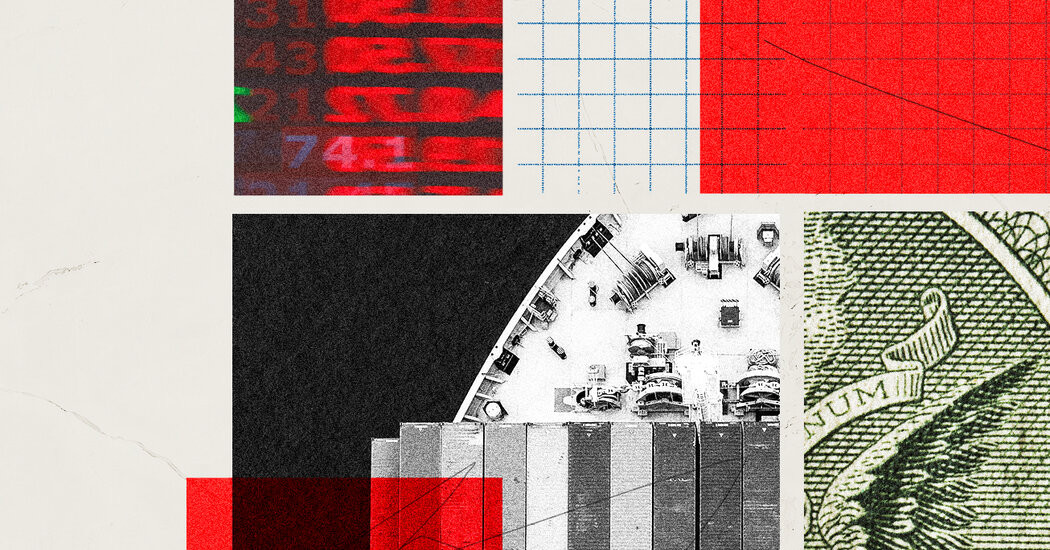

Josh Barro, a contributing Opinion writer, hosted a written online conversation with Lael Brainard, the director of the National Economic Council from 2023 to 2025 and a former vice chair of the Federal Reserve, and Conor Sen, a columnist for Bloomberg Opinion, to discuss the risks to and uncertainty in Donald Trump’s economy.
Josh Barro: It’s been more than two weeks since “Liberation Day,” the day Trump announced massive tariffs that sent global financial markets reeling. As it stands now, the S&P 500 is down about 14 percent from its peak in February.
Why has this news — tariffs that are both higher and more uncertain than expected — disrupted the markets so much?
Conor Sen: Markets and business leaders came into the year with high expectations for the Trump administration — people were saying things like “the most pro-business administration of all time.” Markets were hoping for tax cuts and deregulation, but what we got out of the gate were spending cuts and fiscal uncertainty created by the Department of Government Efficiency, and then a level of tariffs much higher than anyone expected. The tariff announcement has shocked consumer and business confidence, and the high expectations the investor and business community had in the administration have been dashed. The trust has been shattered.
Lael Brainard: The 10 percent base-line tariff for all countries, the 25 percent sectoral tariffs for cars and other products, the enormous tariffs against China mean huge increases in prices for American working families — for clothing, shoes, cars, housing. These are levels similar to the Smoot-Hawley Tariff Act of 1930, and they are going to hurt families and businesses, costing them $3,000 or more a year, scramble business supply chains and hit the economy. That is a huge negative shock.
Barro: Trump’s team has claimed the hit to the stock market is all part of the plan: that Trump’s policies are shifting economic benefits away from Wall Street and toward Main Street. But there’s also been trouble in other markets: U.S. Treasury bond yields have risen, and the dollar has weakened compared with other major currencies. This is unusual. Normally, when the markets become more uncertain, the dollar will strengthen and U.S. Treasury yields will fall as investors try to move into the safest assets: the dollar and U.S. government debt.